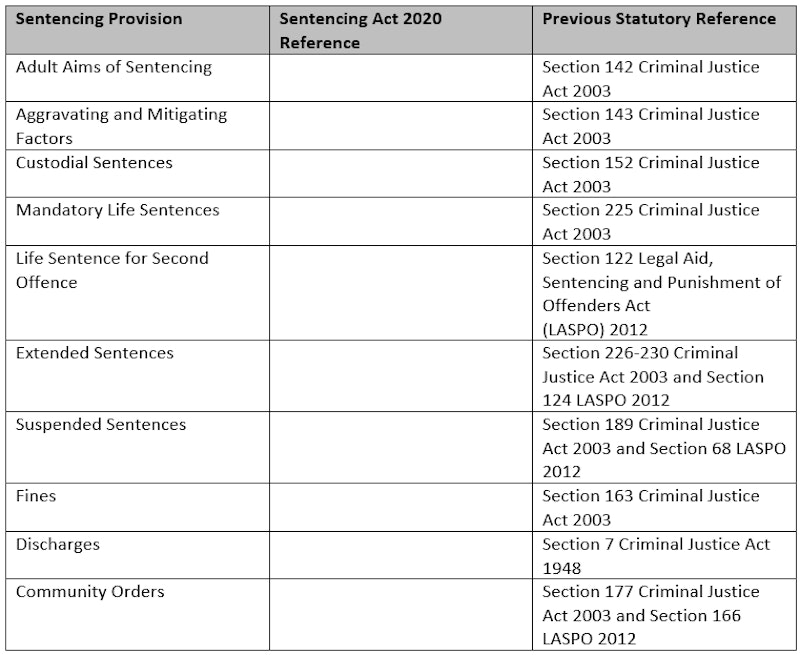Study Notes
The Sentencing Act 2020
- Level:
- AS, A-Level, BTEC National
- Board:
- AQA, Edexcel, OCR, Eduqas, WJEC
Last updated 5 May 2023
In November 2018, the Law Commission considered the various pieces of sentencing legislation and ultimately regarded it as being inefficient, overly complex, lacking transparency and leading to confusion. Offering a proposal for reform, they put forward a draft sentencing code, which became the Sentencing Act 2020.

The Sentencing Act 2020 was seen as long overdue by many and eagerly anticipated by judges and practitioners alike. They welcomed a single piece of legislation offering more clarity for legal practitioners when advising on sentences and judges when passing them. It also offered more transparency and thus aimed to increase public confidence in the criminal justice system.
One of the major problems identified with the previous patchwork of legislation contained in over 65 different acts was that with no consistent approach to drafting, it was often difficult to pin down and interpret. Indeed, the complexity of modern sentencing legislation was remarked on by Treacy LJ in R v Maxwell. This fed through into a high level of sentencing errors and subsequent appeals which flowed from this complexity. For in 2018-19 the Court of Appeal (Criminal Division) received 3,356 applications for leave to appeal against sentence, with the majority of these resulting from unlawful sentences.
With the changes to sentencing from the proposed Sentencing Code, the Law Commission hoped that over the next ten years the introduction of the new sentencing structure would result in saving an estimated £256 million in carrying out fewer appeals against sentence.
The resulting Sentencing Act 2020 created the “Sentencing Code” with Parts 2-13 of the legislation setting out procedural matters and sentencing principles across a wide variety of offences. This condensed multiple statutes into one in a clear, modernised format.
The Act did not make any changes to the law, or include any directions on the law such as Goodyear directions on sentencing, but rather provided sentencing legislation in one place, thus hoping to provide consistency, clarity and transparency.
Coming into force from 1 December 2020 the approach of the new Sentencing Code was to achieve a “clean sweep” of sentencing so that anyone convicted on or after the commencement date would be sentenced according to the Sentencing Code, regardless of when they actually committed the offence. Aiming to simplify sentencing, this meant that those convicted of a historic crime would be sentenced using the most up to date legislation and there would be no requirement to research the sentencing practices at the time of the offence. If however one would be subjected to be a much harsher sentence under the new legislation then this would be an exception. This may apply in situations where a conviction was given as a child and the court are now considering resentencing which would result in a harsher sentence than at the time of conviction. In these instances, imposing the sentence from the time of conviction would be mor appropriate.
The Sentencing Act 2020 can be obtained in full here: https://www.legislation.gov.uk...

Questions to consider:
- What is the purpose of the Sentencing Act 2020?
- What is the function of the Law Commission? Do you think this is the type of project they should be involved with?
- What do you think of the “clean sweep” provision? Is this fair?
- What changes/updates does the Sentencing Act 2020 make to the previous sentencing provision in the UK? You can use the table below to document these changes/updates.

You might also like
Magistrates Sentencing Powers Increase U-Turn
Study Notes
Student Activity: Law Summer Project
Teaching Activities
Should defendants have to appear in court for their sentencing?
1st September 2023